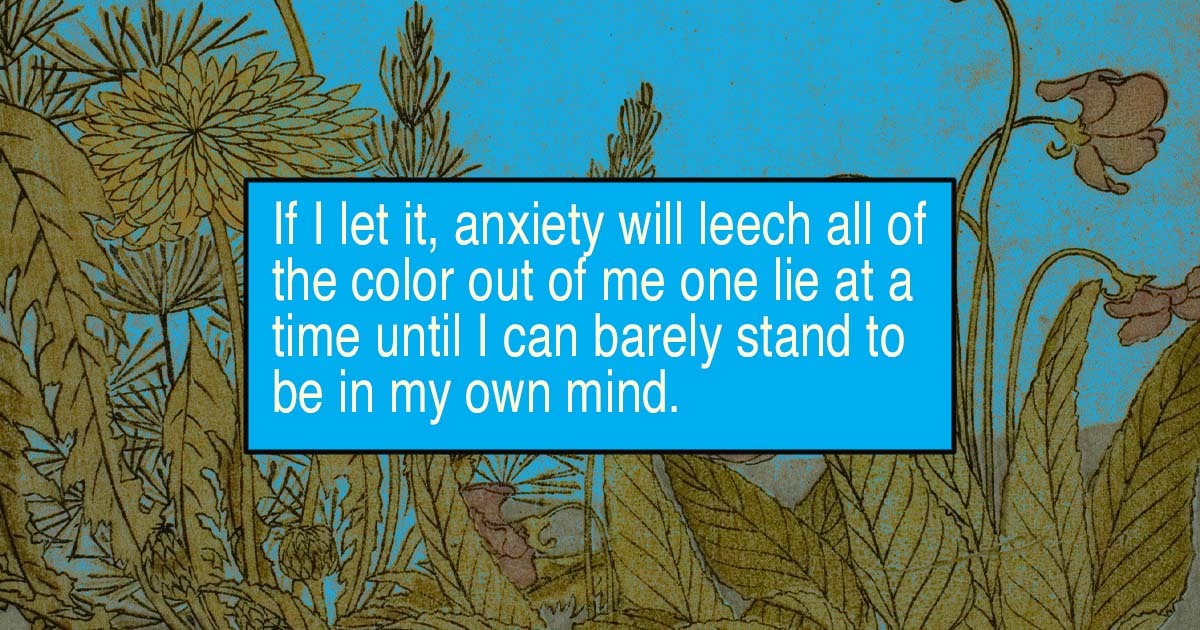Since I was 9, I have worn glasses. I will always remember the day I picked up my new glasses. It was like a brand new world, shiny and full of opportunities. I read every sign I could on the way home. I could see so much more than before and I had no idea what I had been missing.
My mother, in the front seat of the car, instead felt guilt for not realizing I needed glasses sooner. It wasn’t her fault by any means though. It was just a matter of perspective.
Thirty-one years later, I find myself in a Costco trying on glasses to replace my current pair. I’ve had the new prescription for months, but I didn’t have the time to look until recently. There’s a lot to unpack around that, but I finally felt as if I could, and so I did it with my 6-year-old daughter in tow.
I tried on many different pairs, and when I found ones I liked enough, I’d take a selfie and send it to my mom. My mom would then return a volley of reactions to the frames: which ones were her favorite, least favorite, and so on. I asked my daughter, who liked anything blue and purple. I also sent a friend a curated list of options that featured my personal favorites.
This was ongoing, and I found myself occasionally surprised by the reactions to the different frames. I thought one was too small on my face but it was my mom’s favorite, or the one I thought looked really good was the least favorite of others.
As I stared at myself in the mirror, I considered: Whose perspective should I listen to? Mine? My mom’s? The camera’s?
Similar to my glasses, anxiety has been a constant companion over the years—even though I’m just realizing it now. I look back on parts of my life, and I can see anxiety’s fingerprints in my memory. As they say, hindsight is 20-20.
One of the parts I dislike so much about anxiety is the persistent negativity it feeds me.

I’m generally a positive person, often encouraging those around me. I tend to declare that pep talks are one of my superpowers, and yet, when anxiety comes barreling onto center stage, my superpower fails. Or at least, it fails for me.
Instead of a pep talk, I receive a knocking down of a few pegs. A reality check with a sardonic twist. I’m not good enough. I’m not capable. I’m messing everything up. What was I even thinking? I peer into my self-reflection and it distorts.
My anxiety’s surrealist image superimposes itself over who is really there. The real me. The capable me. The me that is worth fighting for. And instead of cheering myself on, I avert my gaze. I deflate. I fade to gray. If I let it, anxiety will leech all of the color out of me one lie at a time until I can barely stand to be in my own mind.
In the store, I tried on so many frames. Pair after pair. Staring in the mirror trying to picture myself in different clothes or with different hair styles. Which pair was best? In the end, I realized that, despite the camera and feedback, I needed to make my own decision. Ultimately, the pair I liked best would look the best on me, merely because I chose it. The only perspective that truly mattered was my own.
I feel like the same goes for my self-perspective. Anxiety will tell me lies, but I need to find ways to reaffirm who I truly am, who is beneath the lies and to strip them away one by one. I need to stare confidently into the mirror of myself and trust my perspective more than what my anxiety tells me.
You are not your thoughts. Anxiety is not who you are—you deserve to know peace. We encourage you to use TWLOHA’s FIND HELP Tool to locate professional help and to read more stories like this one here. If you reside outside of the US, please browse our growing International Resources database. You can also text TWLOHA to 741741 to be connected for free, 24/7 to a trained Crisis Text Line counselor. If it’s encouragement or a listening ear that you need, email our team at [email protected].
Alejandra
Tengo 28 años, aun no llego a las espectativas que tenia sobre mi, tengo una enfermedad autoinmune y necesito ayuda con mi depresión
TWLOHA
Hola,
Sabemos que se pueden poner expectativas sobre nosotros para ser, hacer y lograr. Pero primero, queremos decir que tu valor es inherente. Eres íntegro, humano y digno tal como eres. Las luchas autoinmunes acompañadas de depresión son muy importantes. Lo sentimos y esperamos poder ofrecer un espacio seguro para compartir. No tienes que pasar por esto solo. Si bien nuestro español es limitado, haremos todo lo posible para conectarnos. Envíenos un correo electrónico a [email protected] para que podamos obtener más información sobre usted.
Con esperanza,
TWLOHA
Ron Oliver
Certainly agree!
Pingback: Healing From Trauma: How I Discovered the Roots of My Codependency – TWLOHA